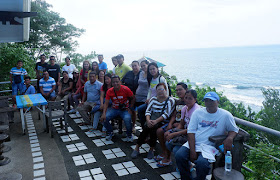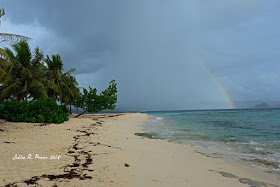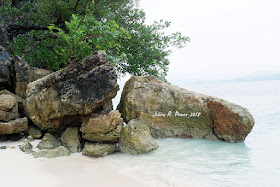The concept of Marine
Protected Area (MPA) in the Philippines dates back in the latter part of the
90s to the early part of year 2000 as a strategy towards coastal resource
management. There have been plenty of MPAs created all over the Philippines,
but only very few exist at present times despite efforts for its sustainability
both in the national and local levels.
In an attempt to gather
yardsticks about MPA management I joined a group of coastal stakeholders in
Sta. Cruz in their visit to the town of Lanuza in Surigao del Sur on December 7.
Lanuza is best remembered by its exemplary performance of administering a huge
MPA.
“It was just a matter
of setting in place a comprehensive framework in order for the people on the
ground to appreciate the initiative,” said Dante Limpot, former chairperson of
the Peoples Organization (PO) that handled the inclusive command of the MPA
before he was later absorbed as organic personnel of the Coastal Resource
Management office. He stressed that the first few years of MPA management is
crucial especially in the aspect of social preparation where local fisher folks
mostly showed vehement resistance.
In terms of the level
of social acceptability of the project, Limpot confidently revealed that as of
the moment the community has really taken important role in the aspect of
coastal law enforcement. “We seldom
experience illegal fishing practices nowadays here. And the very good impact of
this co-management effort between the LGU and the PO in MPA management is the
significant increase of fish catches and the presence of noteworthy marine
species in the entire Lanuza Bay.”
“It is imperative that
there is livelihood option to be offered to the community if MPA management is
to be considered seriously,” Limpot added, stating that the assistance provided
by government offices like DOLE, DTI and LGU had helped a lot in their quest to
succeed in managing a 111 hectares MPA. Presently their PO enjoys 6-digit total
assets in a variety of business enterprises operated smoothly.
The efforts exerted by
Lanuza to make its bay what it is now has never gone unnoticed. In fact, they
are a consistent regional winner of the prestigious Para El Mar Awards,
something that boosted the present multi-stakeholdership approach of the town
in terms of coastal resource development and management.
The MPA management
mechanism employed by Lanuza, which is basically community-based, is a clear
manifestation that environmental conservation and protection should stem out
through people empowerment. Other thwarted MPAs in the country, as far as I
have seen, are mostly caused by inappropriate approaches introduced by local
governments, or are fatalities of the traditional practices flavoured by the ever-detrimental
political factor.












































